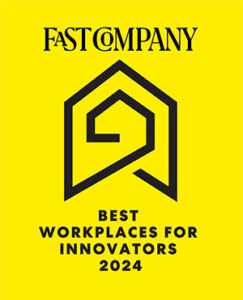December 29, 2016
What will change in 2017? What will stay the same? Where is education heading? As 2016 comes to an end, we’ve put our heads together and made three big predictions for K12 education in 2017.
Personalized learning and more flexibility for demonstrating mastery
“We’re likely to see more policy makers at the state and local levels follow New Hampshire’s lead and experiment with policies that support more personalized, mastery-based approaches to learning. For several years, New Hampshire has been implementing a model that permits multiple pathways to showing mastery/competency in key skills to meet requirements for graduation, as opposed to relying solely on seat time and/or high-stakes assessments. The early reviews on New Hampshire’s approach as well as similar approaches are generally positive. That trend plus a new federal education department that is likely to devolve more power to states means we should expect more states to follow suit with these innovative, mastery-based approaches.” – Eric Stickney, Director of Educational Research
“The term ‘personalized learning’ continues to be a buzzword in the industry. While educators would love to give every student their own individual, custom-created learning experience, they face the realities of managing large classes with many competing demands on their time and resources. Providing automated personalization for consumers, like music recommendations in Spotify, will provide models that education providers will adopt. As students experience this in their personal lives, they will expect it in their learning experiences.” – Sally Searby, VP, Strategic Partnerships
Technology will continue to have an increased impact on education
“Engagement will be measured by the extent of social interactions rather than ‘time on screen.’ Brick and mortar schools will leverage technology, and vice versa, to promote productive social interactions that will not only deepen content knowledge through discourse and collaboration but will develop 21st-century skills for a future workforce. We predict that best teaching practices will continue migrating towards social models, strengthened by advancing technology and enabled by brick and mortar schools.” – Ruby Hogen-Chin, Director – Product Management
“With hands-on, eye-to-eye opportunities for training, conferences, and seminars, education will embrace the REALITY of mobile collaboration, whole-group and small-group conferencing, and interactive online meetings. The possibilities of adapting this format to Renaissance® events was recently seen at a three-day Virtual Winter Academy for consultants. Discussion thrived; questions were resolved through the chat feature; hands-on activities included co-annotation in the software; and the visual connection with colleagues made it REAL. This innovation will influence the future of professional development in education!” – Cheryl Ballou, Associate Education Officer
More vivid, visual, dynamic student data
“Educators’ thinking about data has shifted from data as the determiner, as in ‘data-driven decision making’ to data as the fuel for teachers to determine which decisions are appropriate to accelerate learning. In a recent meeting (Renaissance 12/08/16), Dylan Wiliam took that one step further to say that moving from ‘data driven’ to ‘data fueled’ still places educators as the recipient of data-based decisions. Wiliam suggests that we flip the equation to place teachers at the forefront of decisions through a process he calls, ‘decision-driven data collection.’ Educators determine what they need to know about learners to provide the most effective pathway to academic achievement. Based on what they need to know, they seek the most informative data set to gather insight.” – Jan Bryan, VP, National Education Officer
What are your predictions for 2017? How will your classroom change? How will it stay the same? Share your thoughts in the comments below! And stay updated on all-things-Renaissance by subscribing to the Renaissance newsletter.

